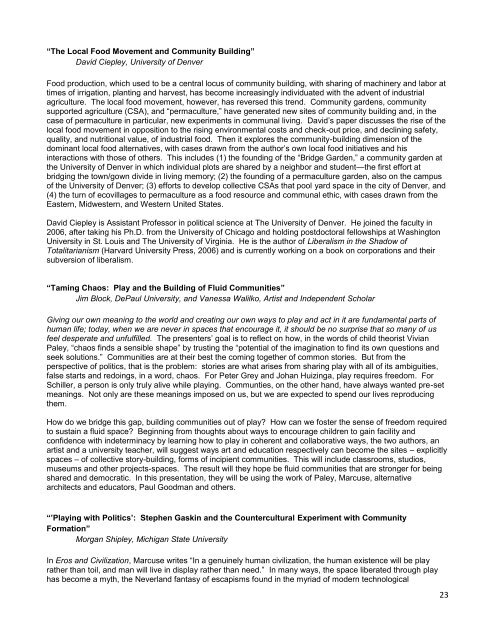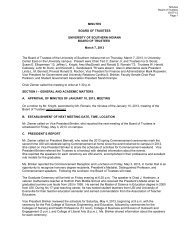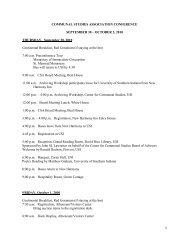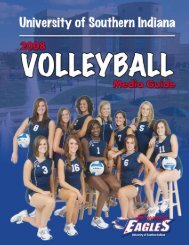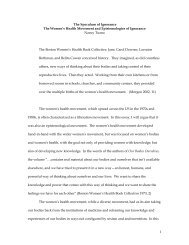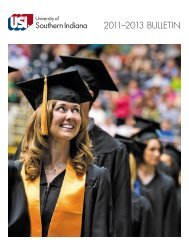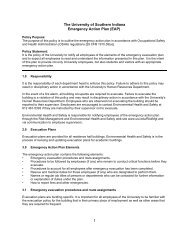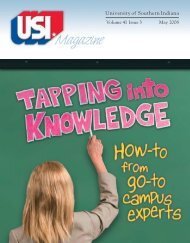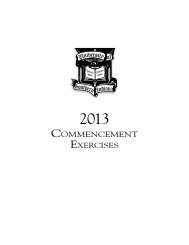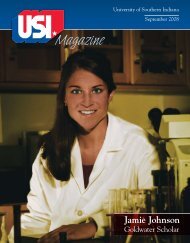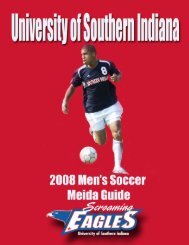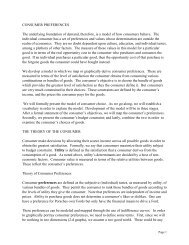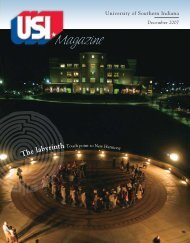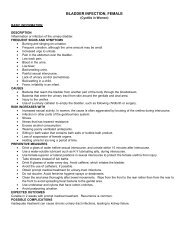Communal Studies Association, 2010 New Harmony, Indiana ...
Communal Studies Association, 2010 New Harmony, Indiana ...
Communal Studies Association, 2010 New Harmony, Indiana ...
You also want an ePaper? Increase the reach of your titles
YUMPU automatically turns print PDFs into web optimized ePapers that Google loves.
“The Local Food Movement and Community Building”David Ciepley, University of DenverFood production, which used to be a central locus of community building, with sharing of machinery and labor attimes of irrigation, planting and harvest, has become increasingly individuated with the advent of industrialagriculture. The local food movement, however, has reversed this trend. Community gardens, communitysupported agriculture (CSA), and ―permaculture,‖ have generated new sites of community building and, in thecase of permaculture in particular, new experiments in communal living. David‘s paper discusses the rise of thelocal food movement in opposition to the rising environmental costs and check-out price, and declining safety,quality, and nutritional value, of industrial food. Then it explores the community-building dimension of thedominant local food alternatives, with cases drawn from the author‘s own local food initiatives and hisinteractions with those of others. This includes (1) the founding of the ―Bridge Garden,‖ a community garden atthe University of Denver in which individual plots are shared by a neighbor and student—the first effort atbridging the town/gown divide in living memory; (2) the founding of a permaculture garden, also on the campusof the University of Denver; (3) efforts to develop collective CSAs that pool yard space in the city of Denver, and(4) the turn of ecovillages to permaculture as a food resource and communal ethic, with cases drawn from theEastern, Midwestern, and Western United States.David Ciepley is Assistant Professor in political science at The University of Denver. He joined the faculty in2006, after taking his Ph.D. from the University of Chicago and holding postdoctoral fellowships at WashingtonUniversity in St. Louis and The University of Virginia. He is the author of Liberalism in the Shadow ofTotalitarianism (Harvard University Press, 2006) and is currently working on a book on corporations and theirsubversion of liberalism.“Taming Chaos: Play and the Building of Fluid Communities”Jim Block, DePaul University, and Vanessa Walilko, Artist and Independent ScholarGiving our own meaning to the world and creating our own ways to play and act in it are fundamental parts ofhuman life; today, when we are never in spaces that encourage it, it should be no surprise that so many of usfeel desperate and unfulfilled. The presenters‘ goal is to reflect on how, in the words of child theorist VivianPaley, ―chaos finds a sensible shape‖ by trusting the ―potential of the imagination to find its own questions andseek solutions.‖ Communities are at their best the coming together of common stories. But from theperspective of politics, that is the problem: stories are what arises from sharing play with all of its ambiguities,false starts and redoings, in a word, chaos. For Peter Grey and Johan Huizinga, play requires freedom. ForSchiller, a person is only truly alive while playing. Communties, on the other hand, have always wanted pre-setmeanings. Not only are these meanings imposed on us, but we are expected to spend our lives reproducingthem.How do we bridge this gap, building communities out of play? How can we foster the sense of freedom requiredto sustain a fluid space? Beginning from thoughts about ways to encourage children to gain facility andconfidence with indeterminacy by learning how to play in coherent and collaborative ways, the two authors, anartist and a university teacher, will suggest ways art and education respectively can become the sites – explicitlyspaces – of collective story-building, forms of incipient communities. This will include classrooms, studios,museums and other projects-spaces. The result will they hope be fluid communities that are stronger for beingshared and democratic. In this presentation, they will be using the work of Paley, Marcuse, alternativearchitects and educators, Paul Goodman and others.“‟Playing with Politics‟: Stephen Gaskin and the Countercultural Experiment with CommunityFormation”Morgan Shipley, Michigan State UniversityIn Eros and Civilization, Marcuse writes ―In a genuinely human civilization, the human existence will be playrather than toil, and man will live in display rather than need.‖ In many ways, the space liberated through playhas become a myth, the Neverland fantasy of escapisms found in the myriad of modern technological23


